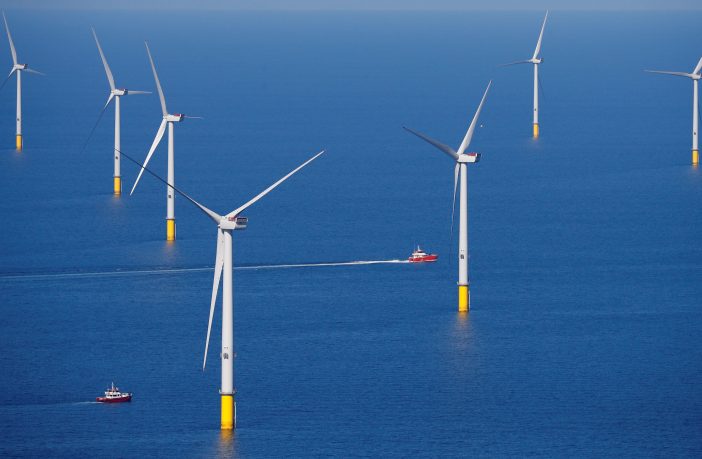- A Stellenbosch University study on offshore wind technology reveals that it can supply the countries energy needs 8 times over.
- The study identifies Richards Bay, KwaDukuza, Durban, and Struis Bay and the most suitable sites for offshore wind farm development.
The study estimated the offshore wind energy resource available within South Africa’s exclusive economic zone (EEZ), using a geographic information system methodology. The available resource was estimated under four developmental scenarios.
The study revealed that South Africa has an annual offshore wind energy production potential of 44.52 TWh at ocean depths of less than 50 m (Scenario 1) and 2 387.08 TWh at depths less than 1 000 m (Scenario 2).
According to Eskom (2019), South Africa’s annual electricity consumption is approximately 297.8 TWh. By converting the above AEP figures to a percentage of South Africa’s annual electricity consumption, it is calculated that the estimated AEP for Scenario 1 could theoretically meet 14.9% of South Africa’s electricity demand. Similarly, the es-timated AEP available in Scenario 2 could theoreti-cally satisfy South Africa’s annual electricity de-mand eight times over. Based on the findings of this study, it is clear that OWE has significant potential to play a fundamental role in South Africa’s future power security and decarbonisation strategies.
Furthermore, a GIS-based multi-criteria evaluation was conducted to determine the most suitable locations for offshore wind farm development within the South African EEZ. The following suitable offshore wind development regions were identified: Richards Bay, KwaDukuza, Durban, and Struis Bay.
Link to report HERE
Author: Bryan Groenendaal















